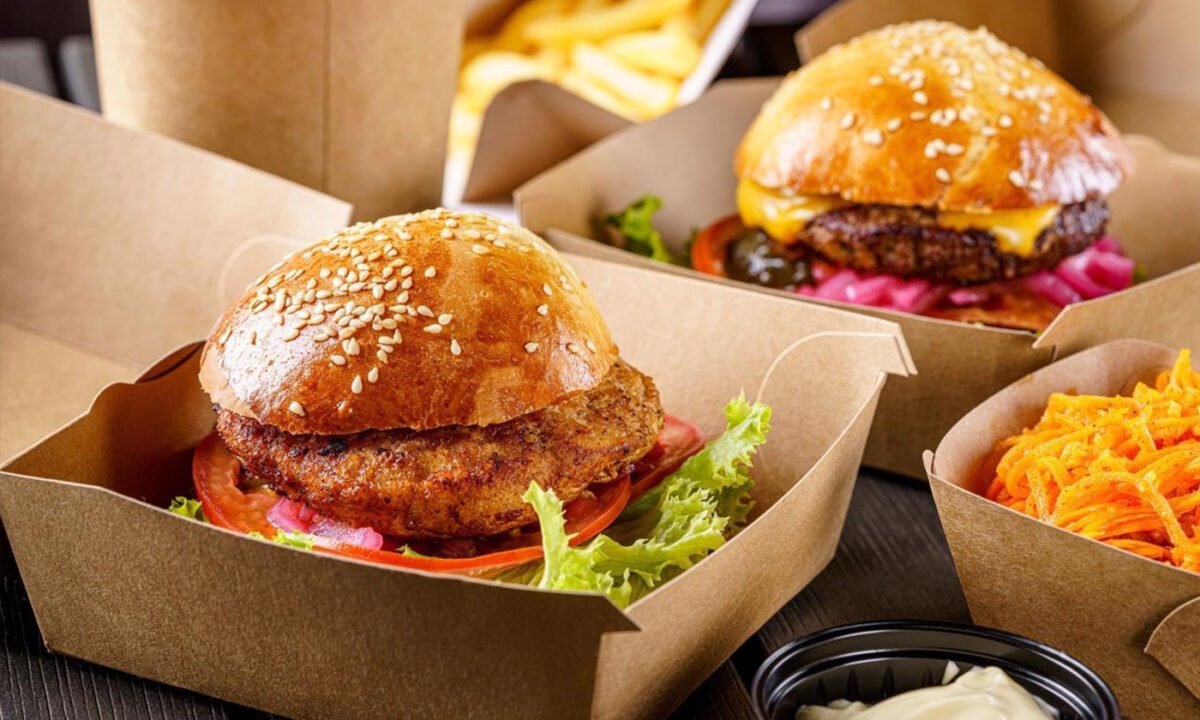Study Reveals Toxic PFAS Chemicals in ‘Compostable’ Fast Food Packaging

Per- and poly-fluoroalkyl substances (PFAS) are a group of synthetic chemicals widely used worldwide and widely added to food packaging due to their oil and water resistance properties. A recent study has revealed the harmful presence of PFAS in food packaging, posing risks to human health through food and environmental contamination.
For the study, published in the international journal Environmental Science and Technology Letters, researchers collected 42 paper packaging papers and bowls from fast-food restaurants in Toronto, Canada. They measured the total fluorine content—an indicator of PFAS—in these items. Detailed analysis was conducted on eight samples with high total fluorine content, which found that fiber-based molded bowls marketed as “compostable” had PFAS levels three to 10 times higher than donut and pastry bags.
The study also identified 6:2 FTOH (6:2 fluorotelomer alcohol)—a known toxic PFAS compound—as the most abundant compound detected in the samples.
PFAS, also known as “forever chemicals,” encompass thousands of synthetic chemicals and are present not only in food packaging such as greaseproof paper, fast-food containers, wrapping paper, microwave popcorn bags, pizza boxes, and candy wrappers but also in non-stick cookware, cosmetics, waterproof clothing, and firefighting foams.
PFAS degradation is extremely slow, leading to accumulation in humans, animals, and the environment over time. Exposure to certain levels of PFAS can result in adverse health outcomes, including reproductive and developmental effects, increased risk of certain cancers and obesity, and reduced immune function.
As of 2022, 11 U.S. states have implemented regulations to prohibit the use of PFAS in food packaging. In 2020, McDonald’s and Restaurant Brands International pledged to eliminate all PFAS from their consumer packaging materials by 2025.
Miriam Diamond, a professor for the Department of Earth Sciences at the University of Toronto and a co-author of the research report stated:
“As Canada restricts single-use plastics in food-service ware, our research shows that what we like to think of as the better alternatives are not so safe and green after all. In fact, they may harm our health and the environment by providing a direct route to PFAS exposure—first by contaminating the food we eat, and after they’re thrown away, polluting our air and drinking water.”
Diamond also emphasized:
“The use of PFAS in food packaging is a regrettable substitution of trading one harmful option—single-use plastics—for another. We need to strengthen chemical management to better corporate responsibility and government regulations.”
Furthermore, in a report published in the same journal in September 2022, Diamond’s research team analyzed children’s clothing in Canada and the United States and found extremely high levels of PFAS in school uniforms, mittens with integrated fingers, and other products marketed as stain-resistant.
Additionally, in another report published in the same journal in June 2021, Diamond’s research team tested PFAS levels in 231 cosmetics, discovering the highest concentrations in foundations, mascaras, and lip products, particularly those labeled as “long-lasting,” “waterproof,” or “smudge-proof.”
“The problem with PFAS is that it is not labeled as an ingredient, so if you want to limit your use of certain products that contain these chemicals, you usually don’t even know what these are,” says Diamond. “That’s when buzzwords will tip you off —like stain-resistant and waterproof. But this vigilance shouldn’t fall only to the consumer.”




